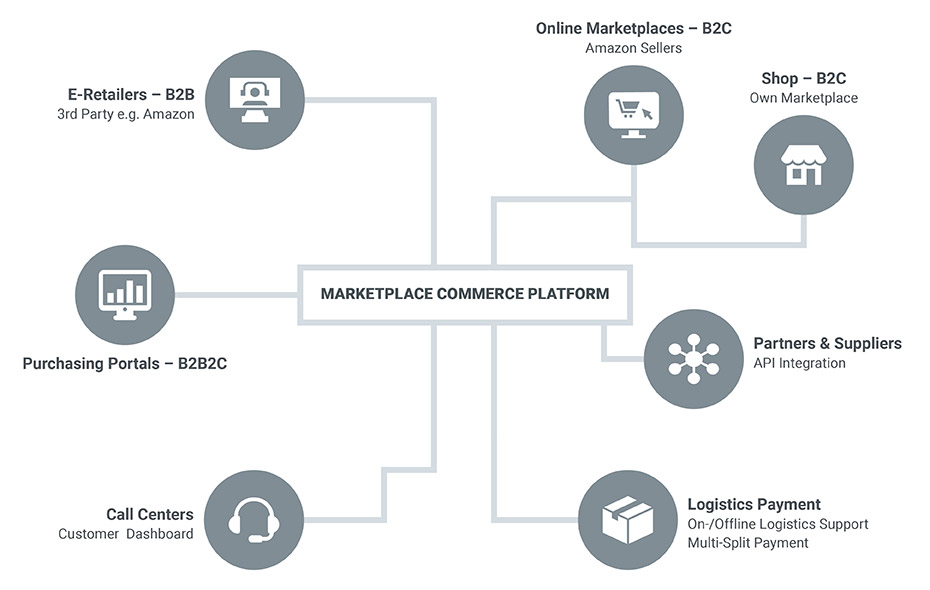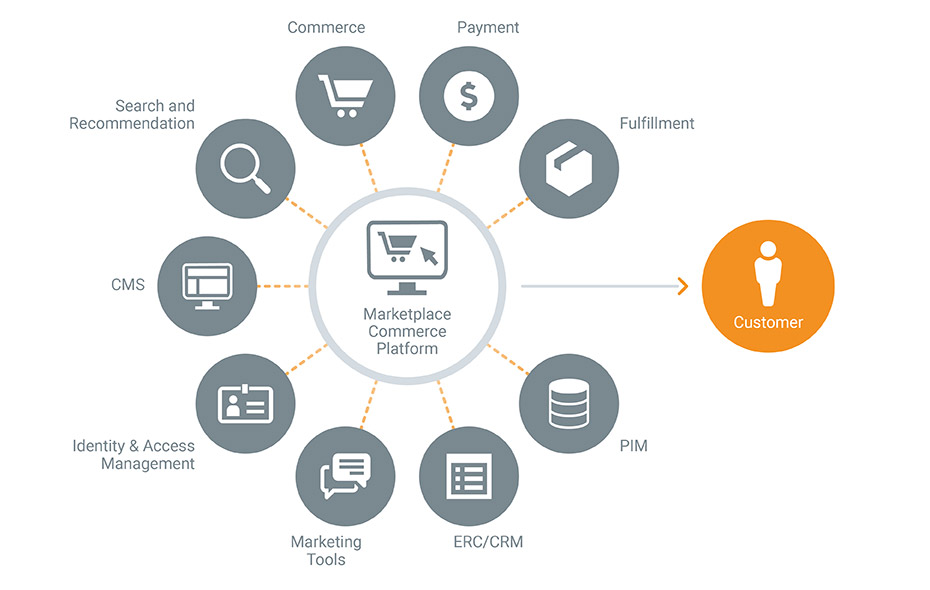Get in touch
Journalist and blogger Sascha Lobo recently said in an interview that “the analog can hardly be separated from the digital.” The topic was the Internet – but what he essentially meant was that the Internet and offline business are merging more and more. Digital business models have long ceased to be merely an option – companies that only think in analog terms will not be able to survive in the long run. This applies to companies that run a B2B business as well as those that do business with end customers.
There are of course similarities between B2B and B2C. Both sell products or services to customers. But the way they address these customers is fundamentally different. The B2C target group is larger, the approach is often very general – communication and sales offers often take place indiscriminately on a large scale.
The target groups are smaller for communication in the corporate sector. Companies generally concentrate on only one industry. Most importantly, the primary goal in B2B is to build long-term and trusting relationships. User journeys here are usually complex, with numerous users involved in the process. In addition, business relationships are often not just about influencing sales; they are often about exchanging, adding or consolidating data.

What does this have to do with Sasha Lobo's assertion? The simple answer is “Omnichannel”. In an Omnichannel, multi-merchant marketplace, all functions that a digital business model requires are mapped onto one platform.
Unlike multi-channel, an Omnichannel approach allows customers to move seamlessly from one channel to another without significant changes in the customer experience. With a multichannel model, transactions are generally completed on one channel – even though multiple channels would be available. The customer can switch channels, but the customer experience is different on each. For example, the offer may change or product information might differ. It is therefore necessary to consistently make all data, prices, services, delivery times, payment options, customer data, etc. available for any number of “touchpoints” – regardless of time or location (see Fig. 1).

Tailor-made digital business models will become increasingly important across all industries (see Fig. 2). It is true that there is no single digital solution that works equally well for every company and in every industry. There are many out-of-the-box options, but since the requirements in each digital transformation are different, the optimal solution is inevitably different as well.
How far different industries have developed in this respect depends, among other things, on how quickly companies have recognized economic trends and the increasing impact of digitalization. Consequently, digital transformation has progressed further in some industries than in others. The extent to which this is the case also depends on how much the disruptive forces have already changed the respective industry.

Omnichannel can be used in any industry, both B2C or B2B. This model is particularly suitable for industries that are currently already undergoing a transformation process (example: automotive). The reason is that Omnichannel offers end customers all the advantages of constant availability of the offer (no matter through which device or at which time), so that customers can start the transaction on one channel and then seamlessly continue or complete it on another channel.
Companies that implement their business as an Omnichannel business benefit from the transparency of all data and processes and consistent communication with their customers, partners and suppliers. With Omnichannel, companies have a comprehensive picture, i.e. a “single customer view”, of their customers for the first time. Because all information is available digitally across all channels, all stakeholders can access data via a central platform and use the data for communicating with the customer. In such a model, this information is synchronized automatically and in real time.
If the data is delivered via a sophisticated Omnichannel solution, retailers and partners are also automatically involved. Omnichannel also enables the seamless integration of all business processes such as purchasing, pricing, services, logistics / fulfillment, etc. This integration of all stakeholders in the process creates transparency and trust. Without this transparency and trust, any digital business model is doomed to failure.
An example of digital transformation can be found in the financial sector, where Commerz Real, a subsidiary of Commerzbank, illustrates how quickly and comprehensively the financial system is changing. Commerz Real is in the process of tapping into new business areas with digital financial products.
The digital business model comprises the automated generation of offers for medium-sized business customers when leasing movable assets. The process has been completely digitalized, from the inquiry to the supplier check, from the preparation of the most important conditions to making the contract ready for signature. Thanks to the flexible, transparent calculation of leasing conditions and contract terms, based on the type of investment object, customer data and contract terms, the customer immediately receives an individual offer.
This process allows offers that were previously created manually to be processed much more quickly and efficiently. What used to take days or weeks can now be completed within minutes. With the new solution, Commerz Real is breaking new ground in customer advisory services and the development of digital financial products.
When companies digitalize their business models, they often forget that Omnichannel is more than “just” a technical solution. The right technology and state-of-the-art platform are basic prerequisites for this approach, but digital transformation also changes business processes and corporate culture. Digitalization without a fundamental change in processes, hierarchies and culture is not possible. The success of digital Omnichannel solutions therefore depends on an open attitude within the company. This openness places the customer even more at the center of all business efforts.
Implemented correctly, an Omnichannel business model can act as a business enabler. Omnichannel opens up new sources of revenue, improves communication with customers and business partners and is ideal for adapting digital business models. In which industry Omnichannel is implemented is of secondary importance.
The complete article was published on the German communication portal on it-daily.net.